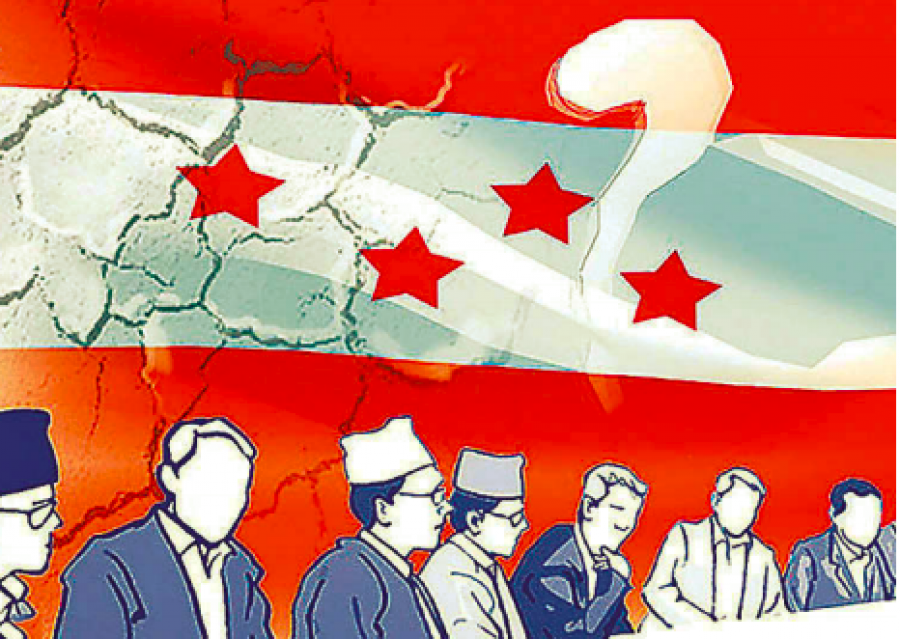Fri, Feb 20, 2026
Editorial
Choice before the Congress
The time has come for the Nepali Congress to think beyond Sher Bahadur Deuba and his coterie.
bookmark
Published at : January 23, 2023
Updated at : January 24, 2023 07:42
The leaders of the rival Shekhar Koirala-Gagan Thapa camp in the Nepali Congress face a central dilemma: Do they give continuity to their campaign to breathe new life into the party or not? In other words, will their interests be best served by further strengthening the rival camp or hedging their bets? The reason for this dilemma is the upcoming election for the country’s President, which will probably be held sometime in mid-February. There are two schools of thought. The first sees no alternative to strengthening the rival camp. In this thinking, Gagan Thapa is sure to lead the party after the next general convention (with Deuba being barred from contesting the party presidency again). If not Thapa, the party will be led by Shekhar Koirala. With the future on their side, even the leaders who are now close to the establishment will eventually coalesce around the rival camp. Deuba, in this reckoning, is past tense for the Congress, while the Koirala-Thapa camp represents the future.
The second school of thought is that even though Deuba now appears weak after the breakdown of the Nepali Congress-Maoist Centre alliance, the canny old operator could yet have some political life left in him. For instance, what happens if he can somehow persuade Pushpa Kamal Dahal to ditch the ruling alliance and back a common Congress-Maoist Centre candidate for a new President? The alliance will then split and the Congress will be back in government.
That will be an enormous political victory for Deuba. In that case, using his new-found powers, Deuba will try to completely sideline rival leaders, while enriching and empowering his acolytes. So perhaps the time has not come to openly go against the party president. While it is understandable for Congress leaders to entertain these thoughts, this line of thinking also represents a false dichotomy. There is not much rationale in continuing to support Deuba. Say, Deuba does manage to do the improbable and somehow gets someone of his choice elected as the new President of Nepal. Even in that case, given his limited shelf-life as party president, his powers to distribute perks and patronage will be limited—whether or not he becomes prime minister again.
There are also few takers for his handpicked successor as party president: His wife Arzoo Rana, who is unpopular both in the party as well as among the broader public. Surely, Congress leaders will not commit hara-kiri by going into the next elections under her leadership! But what if someone else from the establishment camp emerges to challenge the likes of Koirala and Thapa? This too is unlikely. Ultimately, the Nepali Congress rank and file will rally around leaders who can win elections for them. The likely party candidates in the general elections will choose a leader whose face the public trusts and who in turn will ensure their own electability. It is hard to think of one current leader close to Deuba who commands the respect of a broad section of the Congress party, much less of the wider electorate. For all these reasons, the time has come for the Nepali Congress to think beyond Deuba and his coterie. The sooner Congress leaders start on this course, the better it will be for them, their party and the country at large.
Most Read from Editorial
Editor's Picks
Upper house passes tourism bill with tougher Everest rules
What Routine of Nepal Banda gets right, and what it gets wrong
The murky business of room finding in Kathmandu
Nepal’s share market faces unprecedented lockdown as regulators battle industry over trading rules
Ministries differ over extending Indian HICDP aid beyond local governments
E-PAPER | February 20, 2026
×




 13.12°C Kathmandu
13.12°C Kathmandu














